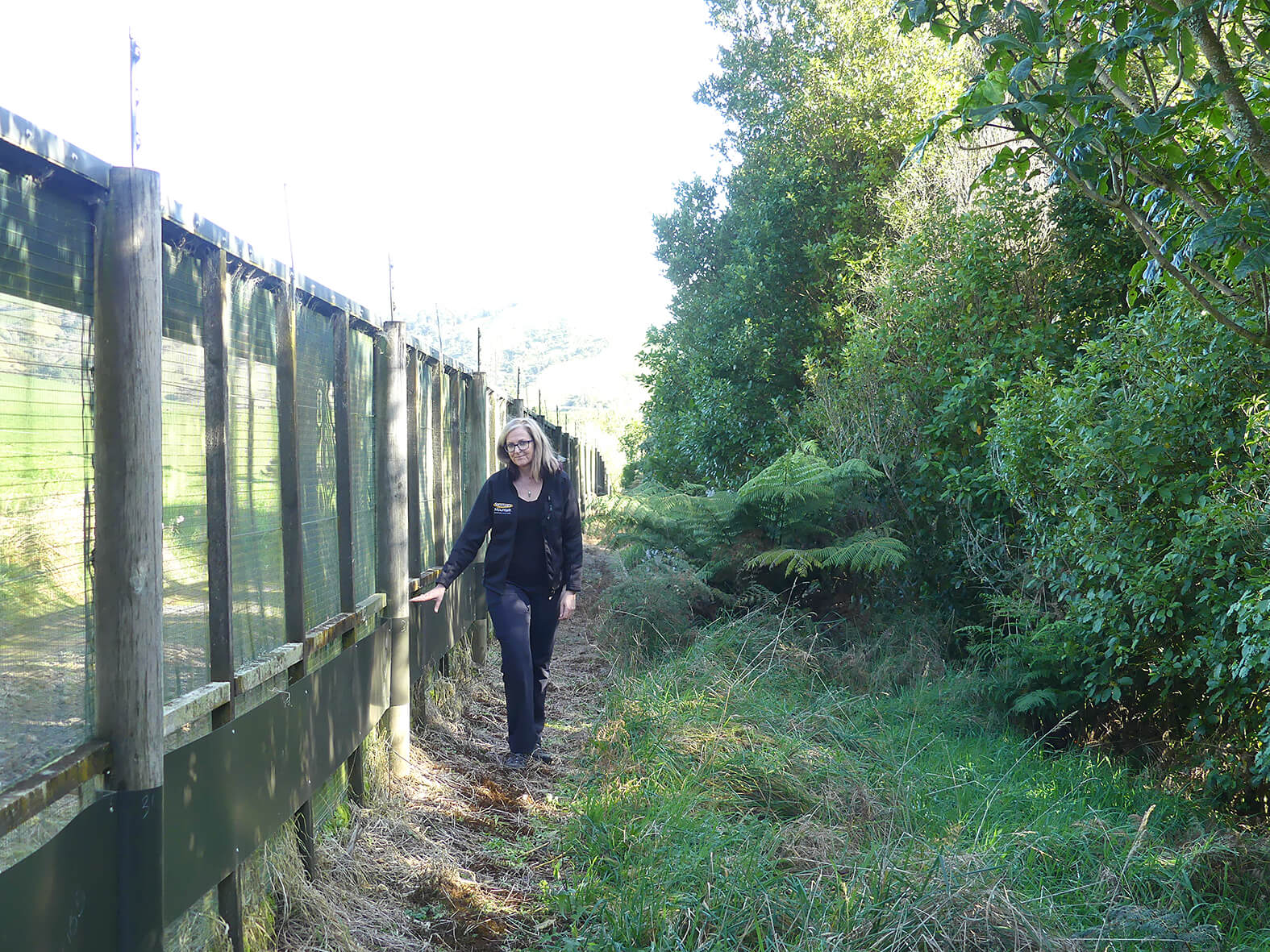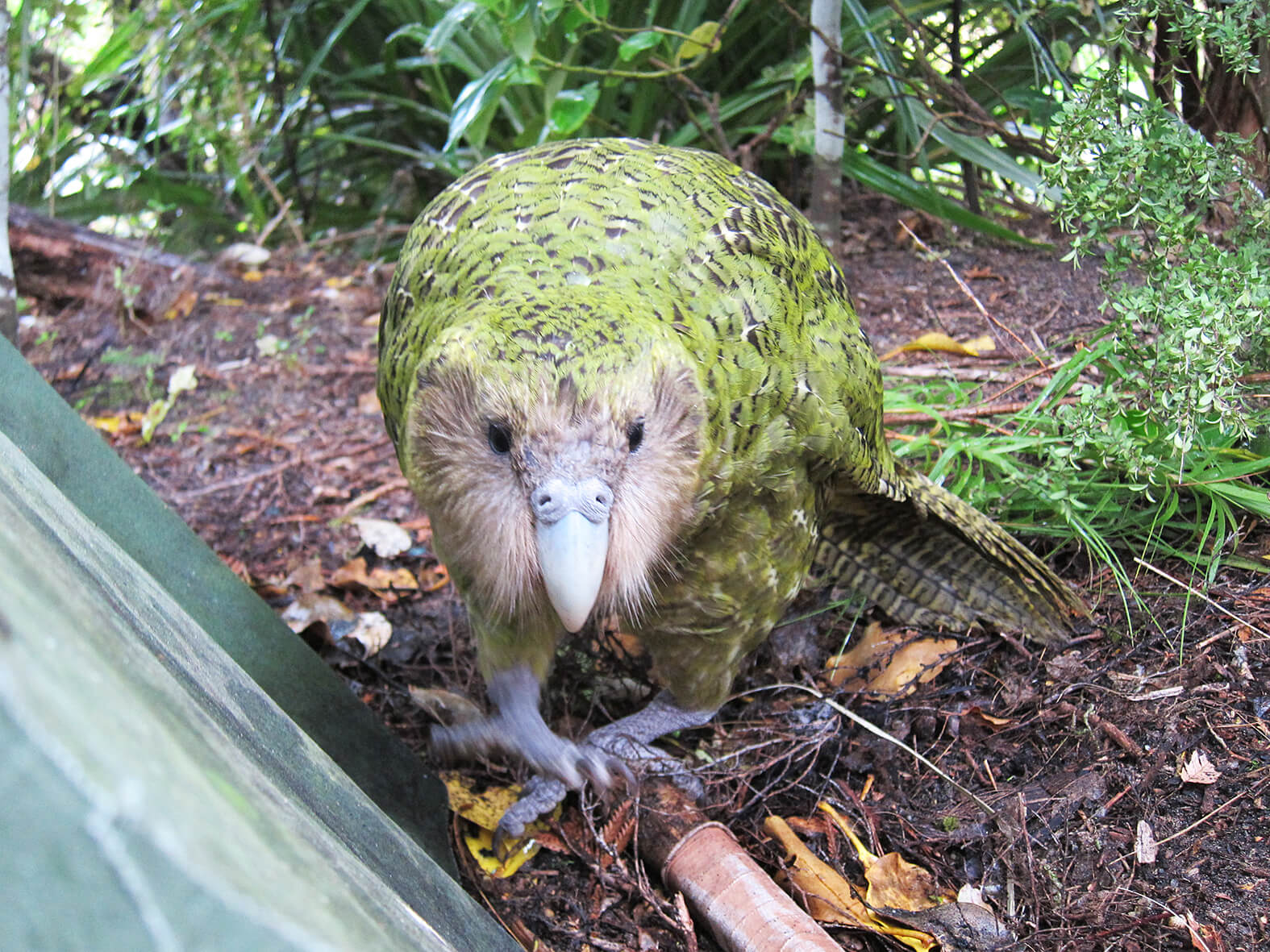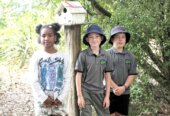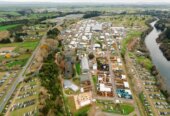
Janelle Ward checks the new barrier which will keep kākāpō in. Installing the barrier around the existing fenceline – in testing weather – took nearly six months and cost about $800,000.
Janelle Ward first met a kākāpō in 2008 at Massey University and was in awe.
“They are incredible birds, stunningly beautiful chunky, full of personality – and a face like an owl.”
She has seen them in their new homes on pest free offshore islands where they are “real characters”.
So little wonder that Maungatautari’s biodiversity team leader has been looking forward to this week.
The maunga is to be gifted as many as four kākāpō as part of a programme to save the world’s most unusual parrot.
The birds – whose total numbers are about 250 – were due to arrive yesterday – after The News went to press.
Kākāpō, the world’s only flightless parrot, are critically endangered and have not lived in the North Island since the last bird was caught in the 1980s. The remnants of what was a huge population now live on offshore islands.
Getting kākāpō is a massive vote of confidence and acknowledgement of the vision to establish the inland pest free island at Maungatautari.
And it comes after a major renovation of the fence which protects native animals from introduced species – had the work not been done, the birds could have climbed out.
For Maungatautari’s kākāpō population this week is just a first step.
As many as four birds are being released initially, and up to 10 by the end of the year – and they are all male.
Those birds will be monitored closely and occasionally given personal health checks to ensure their new environment is right. There are many factors to consider – for example the temperature on Maungatautari is warmer than the birds are used to on offshore islands.
If all goes well, females will join the Waipā based bird in a few years.
The birds are not prolific breeders and breeding is every two to four years in a mast season – when there is an abundance of fruit on rimu trees. Mast comes from the old English word maest and refers to the fruit of trees.
Those seasons are excellent news for New Zealand’s fauna – but today they are a bonus for introduced pests such as rats, hedgehogs and mustelids who prey on native chicks.
“Kākāpō are an iconic species and this is a huge step for their protection,” Ward said.
“Our offshore islands are running out of room. On Anchor Island [in Dusky Sound] there are 100 or more birds.”
As an example of how a successful breeding programme might look, the Maungatautari sanctuary is almost three times the size of Anchor Island.
Their arrival is being rightly celebrated – but comes with a caveat.
Kākāpō are shy and they are masters of camouflage.
Once they are released, they could go anywhere on the maunga in their new safe haven.
The public will be invited to share their space – but they will be told not have any expectations around actually seeing them.
We shouldn’t complain – mammals haven’t actually been particularly kind to one of the world’s most endearing birds.










